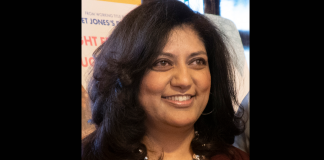Ramadan, one of the holiest and most eagerly awaited months in the Muslim calendar, is almost upon us. As the countdown begins, so does the annual debate within the Muslim community: when will the first fast (Roza) take place?
Muslims fast for either 29 or 30 days during the sacred month of Ramadan, abstaining from food and drink from sunrise to sunset. However, fasting is more than just refraining from eating, it is also about spiritual discipline, self-reflection, and strengthening one’s connection with faith. Special congregational prayers known as Taraweeh, performed in addition to the five daily prayers, further enrich the spiritual experience of the month.

For me, Ramadan preparation starts with a deep clean of the house and stocking up on food essentials, particularly breakfast items. This is probably the only time of year that I truly give breakfast or rather suhoor (the predawn meal before starting a fast in Ramadan), the attention it deserves. Since I will be fasting for over 12 hours each day, I make sure my pre-dawn meal consists of wholesome, nourishing foods to sustain me throughout the day.
Then comes the anticipation of determining the first day of Ramadan. The excitement and uncertainty build as different communities wait for the announcement.
Due to the challenges of sighting the new crescent moon in the UK, some Muslims follow the moon sighting of the nearest Muslim-majority country, while others adhere to Saudi Arabia’s declaration. Ultimately, most people rely on their mosque’s leadership, making the first day of fasting a moment of collective eagerness and joy.
Beyond the personal and spiritual aspects, Ramadan is also a time for self-improvement, charity, and community service. It is a month for realignment, an opportunity to reflect, do good deeds, and strive to become a better version of oneself. Acts of charity are particularly significant during this time, as Muslims are required to donate a percentage of their wealth to those in need. Over the years, I have found it incredibly heartening to witness the increasing participation of non-Muslims in Ramadan traditions. From colleagues and friends choosing to fast in solidarity to interfaith Iftar gatherings, Ramadan has become a symbol of unity that extends beyond the Muslim community.
As we prepare for this sacred month, let us embrace its true essence, compassion, generosity, and togetherness. Ramadan is not just about individual growth but about strengthening bonds within our communities, regardless of faith.
So, from me to you, wishing everyone a very Happy Ramadan!




